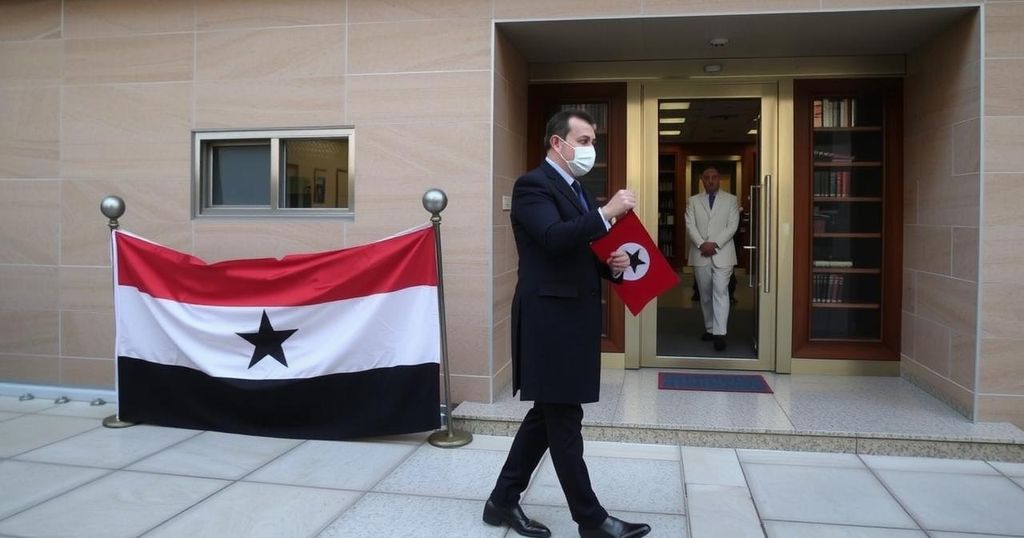Syria’s embassy in Lebanon has halted consular operations following the arrest of two relatives of Bashar Assad with forged passports. This action coincided with Lebanon’s transfer of former Syrian military officers to the new Syrian government. Political tensions persist, highlighted by recent clashes between various armed groups, while Kurdish women activists demand recognition of rights in the new political order.
Syria’s embassy in Lebanon has temporarily suspended consular services following the apprehension of two relatives of former President Bashar Assad at Beirut airport, where they were reportedly attempting to use forged passports. This suspension occurred shortly after Lebanese authorities transferred a group of Syrians, including former Assad-related military officers, to the newly established Syrian government led by Hayat Tahrir al-Sham. The embassy’s announcement, made via social media, did not provide a specific rationale for the consular halt, which was dictated by the Syrian foreign ministry.
As a part of this evolving political landscape, the Syrian Observatory for Human Rights reported the handover of approximately 70 Syrians, including former military personnel, to the new regime. Meanwhile, regional countries have begun to engage diplomatically with Syria’s current leadership, as evidenced by the arrival of Libyan and Bahraini delegations in Damascus. Ahmad al-Sharaa, leader of Hayat Tahrir al-Sham, has worked to mitigate fears among the public regarding potential retribution against those who previously supported Assad.
Nonetheless, tension remains palpable; clashes have erupted between HTS forces and pro-Assad factions, and ongoing violence has been noted in northeastern Syria between Kurdish-led groups and Turkey-backed militias. The United States has expressed concern regarding the situation in Syria, with Secretary of State Antony Blinken calling for a Syrian-led solution that respects human rights.
Amidst this turmoil, protests demanding women’s rights have emerged, particularly from Kurdish women in Hasaka, who argue the new administration poses threats to gender equality in governance. Activists are calling for tangible representation in any future constitutional framework.
The broader implications of these developments signify a complex reconfiguration of power dynamics within Syria, amidst ongoing struggles for rights and representation in uncertain governance.
The situation in Syria has been turbulent since the onset of the civil war over a decade ago, leading to significant political and social upheaval. After the ousting of Bashar Assad’s government, numerous factions, including the Islamist group Hayat Tahrir al-Sham, have asserted control over various regions within the country. The embassy’s suspension of services consolidates the shifting allegiances and challenges faced by the Syrian government in regaining authority and establishing order, especially in light of ongoing protests and international scrutiny regarding human rights abuses.
In summary, the suspension of consular services at Syria’s embassy in Lebanon, coupled with the transfer of former military officers back to the new Syrian regime, underscores the ongoing political transformations within Syria post-Assad. The emerging leadership faces challenges in establishing legitimacy and governance while dealing with internal dissent and regional concerns. Furthermore, the calls for women’s rights amid shifting political power indicate that issues of representation remain crucial in the evolving societal landscape of Syria.
Original Source: www.newsday.com







